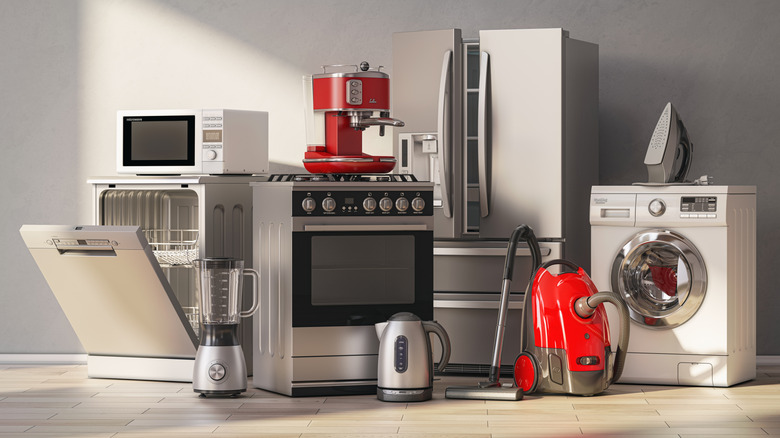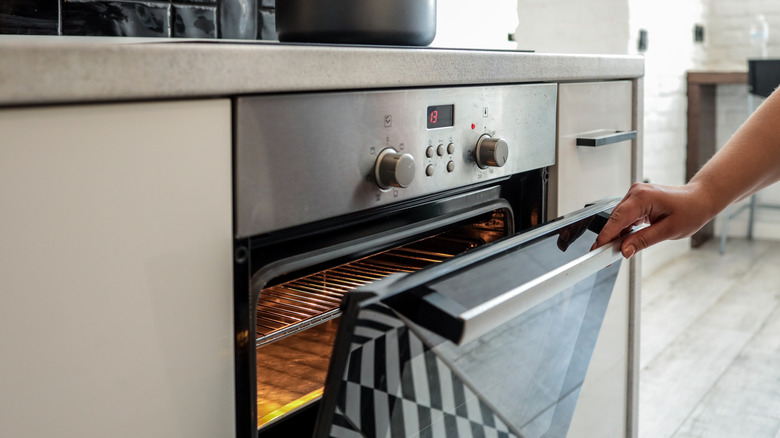This One Household Kitchen Appliance Could Be Quietly Driving Up Your Utility Costs
Anyone who's looked at their utility bills over the past few years knows the cost of electricity has skyrocketed even faster than inflation. That means simple, everyday tasks are taking a larger and larger bite out of many household budgets. However, while many might be adjusting their thermostats or shutting off unused lights, few consider their kitchen when it comes to saving energy — and it's not just those random appliances you've been brainwashed to think you need. In reality, one appliance could be making a significant impact on your bill without you even realizing it: an electric oven.
Simply turning on the heating elements that regulate the temperature of your oven starts a process that draws between 2,000 and 5,000 kilowatts of energy per hour. Those using an electric range at the same time can add another 1,000 to 3,000. That's substantially more than most other kitchen equipment, including dishwashers (500-2,000 kilowatts per hour), microwaves (fewer than 2 kilowatts per hour), and coffee makers (about 120 watts per brew). This is even higher than many space heaters and approaching the energy usage of 3-ton central air conditioning systems.
A slow and steady increase to your electric bill
To put this in real dollar terms, remember that the average American pays just over 16 cents per kilowatt hour, meaning a typical hour of oven use costs between 32 and 80 cents. In states with high energy costs, such as Hawaii or California, it can be two to three times that. This might not sound like much, but it adds up over time when combined with other ordinary home energy usage.
Although they're not available in all areas, gas stoves generally provide a far lower cost of operation. According to HowStuffWorks, gas stoves with typical rates cost about $2.34 per month to operate, while electric ones cost an average of about $6. This difference will vary depending on local electric and natural gas rates, though gas remains the cheaper option. Gas stoves also generally last longer, typically by two to five years, often pushing the time between replacements to 15 years or more with adequate maintenance and cleaning.
While the numbers may be shocking, there's no need to completely abandon those oven-baked dinners the whole family loves. A little awareness and conscientiousness involving your oven usage can go a long way toward trimming your monthly electric bill.

